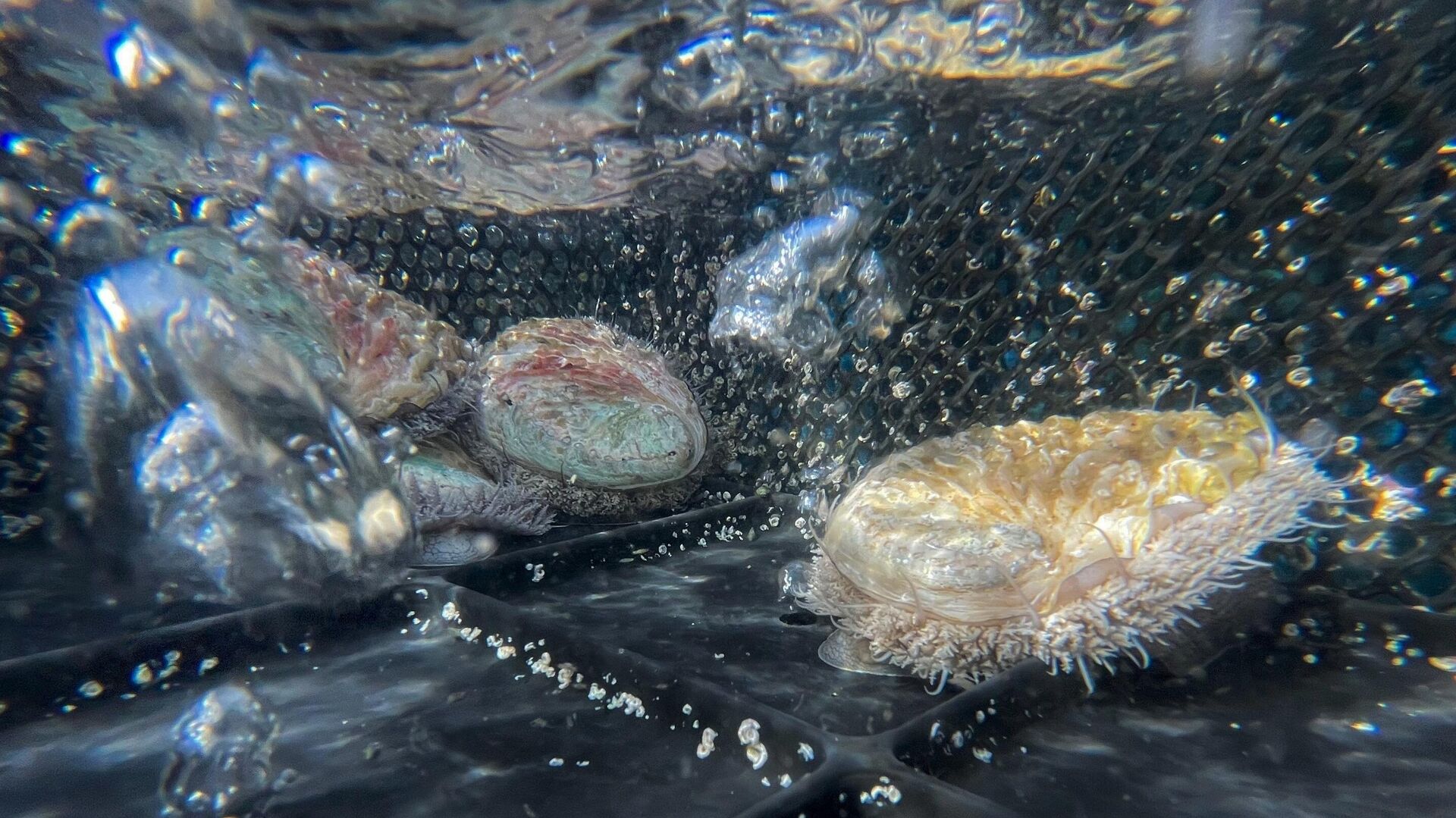https://en.sputniknews.africa/20240814/south-african-police-nab-suspect-with-55000-worth-of-smuggled-abalone-1067865050.html
South African Police Nab Suspect With $55,000 Worth of Smuggled Abalone
South African Police Nab Suspect With $55,000 Worth of Smuggled Abalone
Sputnik Africa
According to the wildlife trade monitoring network TRAFFIC, the number of illegally obtained abalone has roughly quadrupled in the last decade, driven by... 14.08.2024, Sputnik Africa
2024-08-14T19:13+0200
2024-08-14T19:13+0200
2024-08-14T19:21+0200
sub-saharan africa
south africa
southern africa
asia
smuggling
police
arrest
environment
wildlife
animals' protection
https://cdn1.img.sputniknews.africa/img/07e8/08/0e/1067865331_0:218:2868:1831_1920x0_80_0_0_f5dc52e1437c19b82e6b2676b44c3cb0.jpg
South African officials apprehended a man suspected of poaching after discovering tens of thousands of dollars worth of dry abalone. The delicacy, which is highly sought-after and frequently smuggled into Asia, was uncovered during a police operation, the authorities said on Wednesday.The suspect, a South African man, was arrested with 27 black plastic bags containing over 13,000 abalone, according to the environment ministry. The bags weighed a total of 640 kilograms and had an estimated value of over one million rand ($55,000), according to the environment ministry's statement.These poached abalone were located in the Eastern Cape, a province known for its long, untamed Indian Ocean coastline. Poachers frequently target this region, taking endangered sea snails governed by stringent fishing regulations. The environment ministry has demanded a "swift prosecution" of the individual, who was apprehended last week during a random police stop and search.
south africa
southern africa
asia
Sputnik Africa
feedback@sputniknews.com
+74956456601
MIA „Rossiya Segodnya“
2024
News
en_EN
Sputnik Africa
feedback@sputniknews.com
+74956456601
MIA „Rossiya Segodnya“
Sputnik Africa
feedback@sputniknews.com
+74956456601
MIA „Rossiya Segodnya“
south africa, southern africa, asia, smuggling, police, arrest, environment, wildlife, animals' protection, endangered species
south africa, southern africa, asia, smuggling, police, arrest, environment, wildlife, animals' protection, endangered species
South African Police Nab Suspect With $55,000 Worth of Smuggled Abalone
19:13 14.08.2024 (Updated: 19:21 14.08.2024) According to the wildlife trade monitoring network TRAFFIC, the number of illegally obtained abalone has roughly quadrupled in the last decade, driven by trafficking networks that are frequently tied to Chinese crime syndicates. The chewy, salty sea snail is still a traditional dish at feasts and wedding banquets in regions of eastern Asia.
South African officials apprehended a man suspected of poaching after discovering tens of thousands of dollars worth of dry abalone. The delicacy, which is highly sought-after and frequently smuggled into Asia, was uncovered during a police operation, the authorities said on Wednesday.
The suspect, a South African man,
was arrested with
27 black plastic bags containing over
13,000 abalone, according to the environment ministry. The bags weighed a total of 640 kilograms and had an estimated value of
over one million rand ($55,000), according to the environment ministry's statement.
These poached abalone were located in the Eastern Cape, a province known for its long, untamed Indian Ocean coastline. Poachers frequently target this region, taking endangered sea snails governed by stringent fishing regulations. The environment ministry has demanded a
"swift prosecution" of the individual, who was apprehended last week during a random police stop and search.
"I urge every South African to be vigilant and report any environmental crimes to the authorities," Deputy Environment Minister Narend Singh told the media, adding that "it is crucial that our communities work hand in hand with law enforcement agencies to protect our marine resources."

